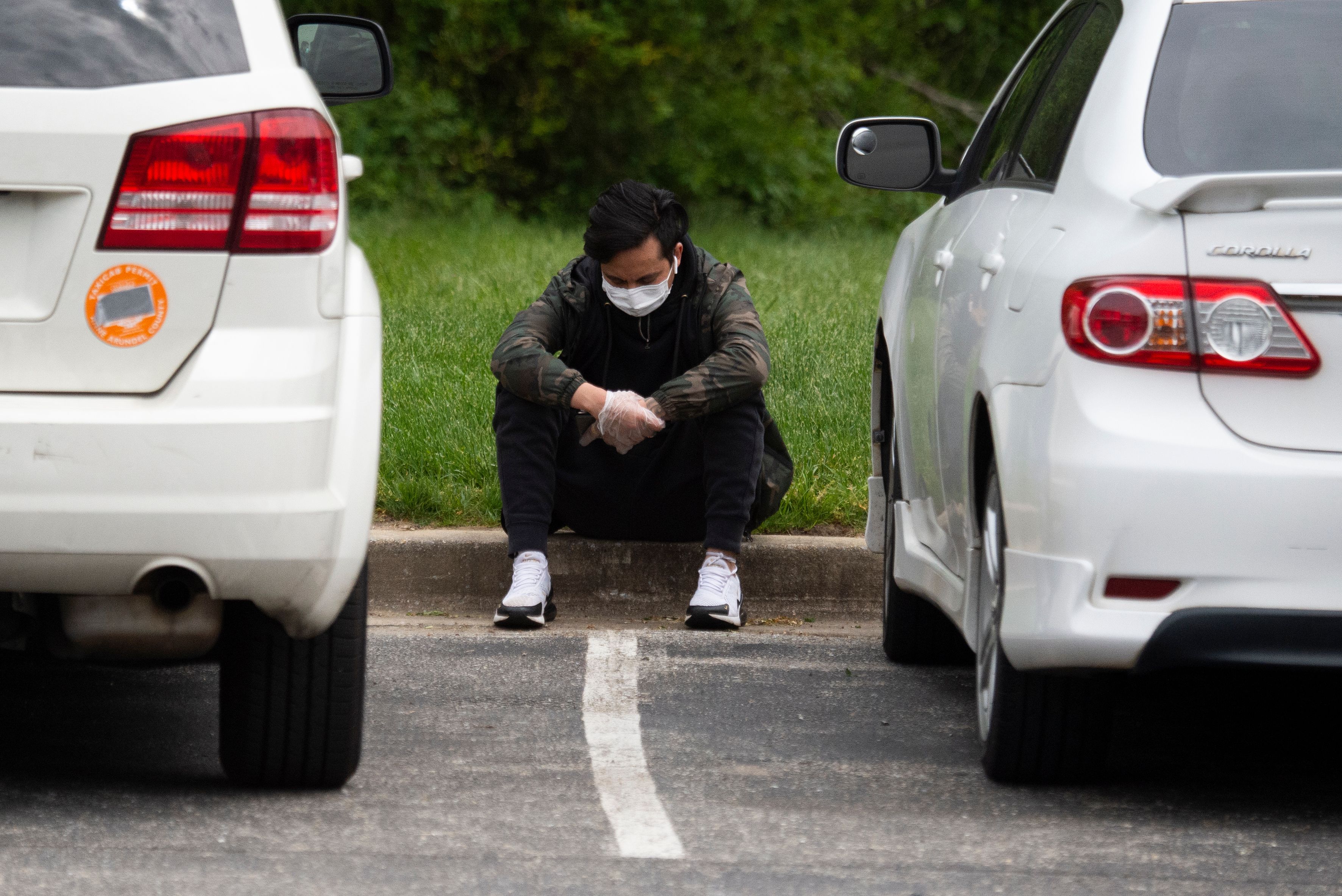Several months into the pandemic, most Americans are familiar with the physical toll COVID-19 takes on those who contract it. But what about the mental and emotional implications of stress caused by the pandemic itself?
A new study by researchers from the University of Connecticut provides the first snapshot of the immediate impact of COVID-19 on Americans’ stress levels, coping strategies, and adherence to public health guidelines.
For the study, which was published in the Journal of General Internal Medicine, the team surveyed over 1,000 English-speaking individuals, 18 years of age or older, living in the United States. Responses were collected in early April 2020, giving the researchers a unique view of how Americans are handling their new reality.
“Almost overnight, the rapid emergence of the COVID-19 pandemic in the United States and subsequent state and federal prevention measures dramatically altered daily behavior,” says Crystal Park, professor of in the Department of Psychological Sciences. “This unique, early study and our planned future work will let us see how Americans navigate all of these changes, and how their response to this stress evolves over time.”
In the study, the UConn researchers present baseline data on COVID-19-related stressors in three categories: stress related to the virus itself, stress related to changes in daily routines caused by the pandemic, and financial or resource-related stress. These measures allowed them to examine the circumstance-specific stressors of COVID-19 rather than global stress that could have other causes.
Based on previous work during SARS outbreaks and the early months of the COVID-19 pandemic, the researchers created an assessment of 23 COVID-19 stressors and their degree of stressfulness. The survey showed that Americans have high stress exposure from COVID-19, and that some demographic groups appear particularly vulnerable to stress effects. Reading or hearing about the severity and contagiousness of COVID-19 was the most common stressor, with almost 97% of survey respondents experiencing it. Uncertainty about the duration of social distancing requirements and changes to social and daily personal care routines also ranked high on the list of stressors with between 80% and 88% of those surveyed experiencing them.
While fears related to the virus itself were the most common, the survey showed that respondents were more acutely concerned about the financial consequences caused by the pandemic. Of the stressors experienced, respondents ranked loss of job security or income as the most stressful, followed by risk of a loved one’s illness.
The researchers also looked at the methods Americans reported using to cope with these stressors. Distraction, seeking emotional social support, and active coping were the most commonly reported strategies. Younger participants, sexual minorities, and those with greater financial instability generally reported greater use of less helpful strategies, including substance use, behavioral disengagement, and humor.
Because of the unprecedented nature of the COVID-19 pandemic, the researchers say it’s hard to determine which strategies will be healthy for managing stress over the weeks and months ahead.
“Distraction or avoidance is usually considered to be an unproductive coping strategy for most challenging situations and can lead to negative outcomes,” says Beth Russell, associate professor of Human Development and Family Sciences and director of the Center for Applied Research in Human Development (CARHD). “But in this instance where people don’t have much control over making the disease itself better, we can do small things to help ourselves and others – seek connections through telemediated emotional support, for example – and find ways to let the time pass. We’ll see in the long run how those strategies help people’s mental health.”
The survey also showed very high rates of compliance with social distancing and federal Centers for Disease Control and Prevention (CDC) guidelines. Approximately 95% of respondents avoided eating out at bars or restaurants and visiting nursing homes, although these behaviors are likely impacted by policies enacted at the state and municipal levels. Almost 90% of respondents had stopped discretionary travel and were keeping the recommended six-feet distance from others. Approximately 75% of respondents reported adhering to CDC guidelines related to hygiene, like avoiding touching their faces and regularly cleaning and disinfecting surfaces. Some of the reported behaviors showed a potentially worrisome lack of adherence to critical CDC guidelines though, particularly for men and younger adults.
The role demographics play in stress, coping, and adherence to guidelines will be the focus of future studies by the team. Those results will be important for clinicians and policymakers as they develop the most effective health interventions to stem the anticipated long-term mental health impacts, they say.
“As we focus on developing treatments and vaccines, it is critical that we also understand the social aspects of this virus,” says Michael Fendrich, associate dean for research in UConn’s School of Social Work and co-author of the paper. “Understanding how Americans experience and respond to COVID-19 stressors and how this varies by socio-demographic characteristics can help to more effectively target prevention measures across various groups.”
The team is continuing to monitor Americans’ response to stress from the COVID-19 pandemic in future longitudinal waves of this study, which they hope will inform effective health behavior interventions to stop its spread.
This work was funded through an existing grant from National Institute on Alcohol Abuse and Alcoholism (1R34AA027455), as well a seed grant from UConn’s Institute for Collaboration on Health, Intervention, and Policy (InCHIP). Other contributors to this work include Lucy Finkelstein-Fox, Morica Hutchison, and Jessica Becker.



